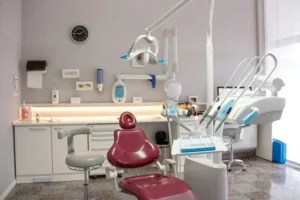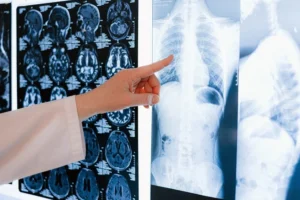What Are Some Signs That You May Have BPH?
- Updated on: Aug 27, 2024
- 3 min Read
- Published on Aug 16, 2023


Photo from Pexels
Benign prostatic hyperplasia (BPH) is a common condition that affects many men as they age. It occurs when the prostate gland, which is a small walnut-sized organ located below the bladder, enlarges and causes various urinary symptoms.
While BPH is a non-cancerous condition, its symptoms can significantly impact a man’s quality of life. It’s essential to recognize the signs of BPH early on to seek appropriate medical attention and management.
Here are some common signs that you may have BPH.
Frequent Urination
So, what is BPH in terms of symptoms? One of the early signs of BPH is an increased need to urinate, especially during the night. Medically known as nocturia, this symptom occurs because the enlarged prostate puts pressure on the urethra, causing it to become narrow. Consequently, the bladder must work harder to expel urine, resulting in frequent trips to the bathroom. This can disrupt sleep patterns and lead to fatigue and irritability. Moreover, nocturia can be particularly bothersome, as it affects the overall quality of sleep, leading to daytime drowsiness and reduced productivity. Men with BPH may find themselves waking up multiple times during the night to urinate, which can significantly impact their well-being and overall daily functioning.
Weak or Interrupted Urinary Stream
Men with BPH often experience a weakened or interrupted urinary stream. As the prostate enlarges, it can obstruct the normal flow of urine through the urethra, causing the stream to become weaker, hesitant, or even stop and start during urination. This can be frustrating and uncomfortable, leading to difficulty emptying the bladder completely. In severe cases of BPH, the weakened urinary stream and incomplete bladder emptying can increase the risk of urinary tract infections (UTIs) as urine may stagnate in the bladder, providing a breeding ground for bacteria. Additionally, the strain and effort required to urinate can lead to the development of urinary retention, a condition where the bladder doesn’t empty fully, further exacerbating the symptoms of BPH.
Urgency and Incontinence
Furthermore, the sense of urgency and incontinence associated with BPH can have a significant psychological impact, causing embarrassment and affecting a man’s self-esteem and confidence. Men may start avoiding social situations or outings due to the fear of experiencing unexpected leakage, further impacting their quality of life and mental well-being. Seeking prompt medical evaluation and appropriate management can help alleviate these distressing symptoms and improve the overall outlook for men living with BPH.
Difficulty Initiating Urination
Men with BPH may find it difficult to start the urinary stream when they visit the bathroom. This difficulty in initiating urination is due to the prostate gland obstructing the flow of urine through the narrowed urethra. It can take a few moments of straining or pushing before the urine flow begins, causing discomfort and frustration. Moreover, the difficulty in initiating urination can also result in a feeling of urgency, as the bladder contracts more forcefully to overcome the obstruction. This combination of difficulty starting the urinary stream and a sudden urge to urinate can create a challenging and uncomfortable situation for men with BPH, impacting their daily routines and activities. Seeking early intervention and appropriate treatment can help manage these symptoms effectively, improving the overall quality of life for individuals living with BPH.
Feeling of Incomplete Emptying
Another common sign of BPH is the sensation that the bladder doesn’t completely empty after urination. Even after visiting the bathroom, men with BPH might feel like there’s still some urine left in the bladder. This feeling of incomplete emptying occurs because the enlarged prostate restricts the flow of urine, leaving some in the bladder even after voiding. This sensation of incomplete emptying can lead to an increased frequency of bathroom visits as men may attempt to urinate more often to relieve the discomfort. However, this repetitive urge to urinate often results in only small amounts of urine being passed each time. Additionally, the retained urine in the bladder can increase the risk of urinary tract infections (UTIs) and other complications, further highlighting the importance of timely medical evaluation and management for men experiencing these symptoms.
Conclusion
If you experience any of these signs or symptoms, it’s crucial to consult a healthcare professional, preferably a urologist, for a proper diagnosis and treatment plan. BPH can be managed effectively with lifestyle changes, medication, or in severe cases, surgical interventions.
Early detection and intervention can improve your quality of life and prevent complications associated with untreated BPH. Ignoring these signs and symptoms of BPH can lead to the condition worsening over time, potentially causing more severe complications such as bladder stones, urinary retention, or kidney damage. By seeking medical attention early on, individuals can receive appropriate treatment and guidance to alleviate symptoms, minimize the impact on their daily lives, and maintain optimal prostate health.












